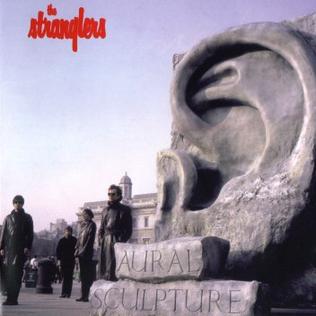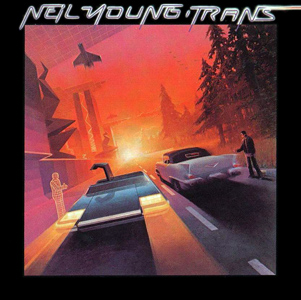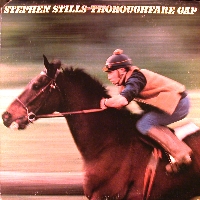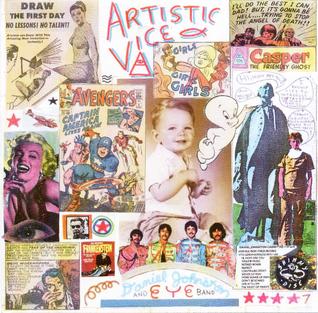
Laurel Philips Anderson, known as Laurie Anderson, is an American avant-garde artist, composer, musician, and film director whose work spans performance art, pop music, and multimedia projects. Initially trained in violin and sculpting, Anderson pursued a variety of performance art projects in New York during the 1970s, focusing particularly on language, technology, and visual imagery. She became more widely known outside the art world when her song "O Superman" reached number two on the UK singles chart in 1981. Her debut album Big Science was released the following year. She also starred in and directed the 1986 concert film Home of the Brave.

Exposé is an American Latin freestyle vocal group formed in 1984 in Miami, Florida. Primarily consisting of lead vocalists Jeanette Jurado, Ann Curless, and Gioia Bruno, the group achieved much of their success between 1984 and 1993. They became the first group to attain four top-10 entries on the Billboard Hot 100 since their debut album, including 1988 number-one single "Seasons Change." In March 2015, Billboard magazine named the group the eighth most-successful girl group of all-time.
William Mark Wainwright, known professionally as William Orbit, is an English musician and record producer who has sold 200 million recordings worldwide of his own work, his production and song-writing work. He is a recipient of multiple Grammy Awards, Ivor Novello Awards and other music industry awards.

Bouncing off the Satellites is the fourth studio album by American new wave band the B-52's, released on September 8, 1986 by Warner Bros. Records. It was recorded in July 1985 and was produced by Tony Mansfield. Founding member and guitarist Ricky Wilson died of AIDS after most of the work on the album was completed, but a year prior to its release. The B-52's had gone on hiatus by the time Bouncing Off the Satellites was released, and it took three years for the band to recover from Wilson's death and release their next studio album, Cosmic Thing.

Tonight is the 16th studio album by the English singer-songwriter David Bowie, released on 24 September 1984 through EMI America Records. The follow-up to his most commercially successful album Let's Dance, it was written and recorded in mid-1984 at Le Studio in Morin-Heights, Canada, following the conclusion of the Serious Moonlight Tour. Bowie, Derek Bramble and Hugh Padgham co-produced the album. Many of the same personnel from Let's Dance and the accompanying tour returned for Tonight, with a few additions. Much of Bowie's creative process was the same as he used on Let's Dance, similarly playing no instruments and offering little creative input to the musicians.
Torch Song were a British electronic and ambient band of the early 1980s. Original members were William Orbit, Laurie Mayer and Grant Gilbert. By 1985 they had disbanded. The band re-formed the project in 1995 and recorded their final album, Toward the Unknown Region, and were joined by Rico Conning, who had produced artists at the original Guerilla Studios and also was a member of post punk band, The Lines.

The Raw & the Cooked is the second and final studio album by British rock band Fine Young Cannibals, released in 1989. The title of the album was lifted from the book of the same name by French anthropologist Claude Lévi-Strauss. Four songs from the album first appeared in film soundtracks in the mid-1980s, three of which were soul tracks from the Tin Men film. The band had already recorded over half of the album by the time David Z came to produce the remainder. His work with the band, which resulted in dance-rock material, included studio experimentation.
Don Dixon is an American record producer, songwriter, and musician. He is considered to be one of the key producers of what is called the jangle pop movement of the early 1980s, including working with R.E.M. and The Smithereens.

Don't Stand Me Down is the third studio album by English pop band Dexys Midnight Runners, released in September 1985 by Mercury Records. The title of the album was inspired by a line in the album's song "The Waltz".

Aural Sculpture is the eighth studio album by the Stranglers, released in November 1984 by Epic Records. It was also the name given to a one-sided 7-inch single given free with a limited number of copies of their Feline album in 1983. The "Aural Sculpture Manifesto" on the 7" single was played before the Stranglers appeared on stage during concerts during both the 1983 "Feline" tour and the 1985 "Aural Sculpture" tour.

Trans is the twelfth studio album by Canadian musician and singer-songwriter Neil Young, released on January 10, 1983. Recorded and released during his Geffen era in the 1980s, its electronic sound baffled many fans upon its initial release—a Sennheiser vocoder VSM201 features prominently in six of the nine tracks.

Thoroughfare Gap is the fifth studio album by American singer-songwriter Stephen Stills, released in 1978. It was a critical and commercial disappointment that only charted at number 84 in the US. This album is now available as a three-album set on two CDs with Stills & Illegal Stills, having never been released on its own on CD.

Bucky Fellini is the third studio album by The Dead Milkmen. It was released in 1987 by Enigma. The album peaked at No. 163 on the Billboard 200.

Higher Power is the seventh album by Big Audio Dynamite, released in 1994. First released in the US on 8 November, it was then released in the UK the following week on 14 November 1994. "Looking for a Song" was released as a single; it peaked at No. 24 on Billboard's Modern Rock Tracks chart. The band supported the album with a North American tour.

"If You Love Somebody Set Them Free" is the first single released from Sting's solo debut album The Dream of the Blue Turtles. It is also the opening track of the album, and is featured on Fields of Gold: The Best of Sting 1984–1994 as well as The Very Best of Sting & The Police.

Artistic Vice is the first studio album by singer-songwriter Daniel Johnston, and his twelfth overall, counting his nine widely distributed demo tapes, two earlier aborted attempts at studio albums,, and collaboration with Jad Fair, It's Spooky. It was his first full-length album recorded after a three-year hiatus. The album is considered more light-hearted than its predecessor, 1990.

My Oracle Lives Uptown is the tenth album by British electronic musician and record producer, William Orbit. It was released digitally on 4 May 2009 on Kobalt Digital, as a 12-track limited edition. It was released as a physical CD on 8 June 2009 with 16 tracks. The 16 track version was released as a Studio Master quality digital download and on deluxe Double 180g vinyl by Linn Records.
"Gang Bang" is a song recorded by American singer Madonna, from her twelfth studio album MDNA (2012). It was written by Madonna, Mika, William Orbit, Priscilla Hamilton, Keith Harris, Jean-Baptiste, Don Juan "Demo" Casanova, and produced by Madonna, Orbit and The Demolition Crew. Madonna cited American director Quentin Tarantino as an inspiration for the song, revealing that she wanted him as the director for the song's music video.
"Let Me in Your Heart Again" is a song by British rock band Queen. It was written by lead guitarist Brian May. It was intended for The Works but was not finished until 2014, when it was released on the compilation Queen Forever. To date, it is the last original Queen track to be released as a 12” maxi-single. The 12” maxi-single with the William Orbit remix is included as an extra in the Queen Forever 4 LP box set.

Hope and Glory is an album by the British musician Tom Robinson. It was released in 1984.















